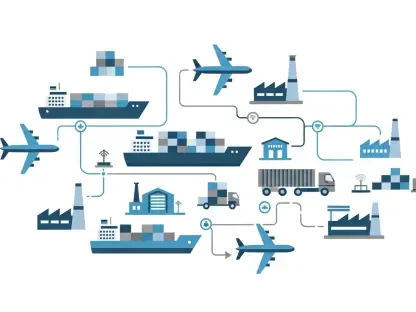I’m thrilled to sit down with Rohit Laila, a seasoned veteran in the logistics industry with decades of experience spanning supply chain management and delivery. Rohit’s passion for technology and innovation has positioned him as a thought leader in aviation logistics, making him the perfect person to discuss the exciting developments surrounding Ascend Airways Malaysia. Today, we’ll dive into their recent milestone of securing an Air Operator’s Certificate, their strategic focus on cargo and passenger services in Southeast Asia, and how they plan to leverage Malaysia’s unique position as a regional hub.
Can you walk us through the significance of Ascend Airways Malaysia receiving their Air Operator’s Certificate and what this means for their operations in the region?
Absolutely, Oliver. Receiving the Air Operator’s Certificate is a game-changer for Ascend Airways Malaysia. It’s essentially the green light to start operations, ensuring that the airline meets all safety, regulatory, and operational standards set by the authorities. For their operations in Malaysia, this certification allows them to launch cargo services as early as November and sets the foundation for expanding into passenger flights down the line. It’s a critical step in establishing their presence in Southeast Asia, a region buzzing with growth potential.
What was the journey like to secure this certification, and did any significant hurdles come up along the way?
The process to obtain an AOC is never a walk in the park. It often takes months, sometimes years, of rigorous audits, documentation, and inspections to prove compliance with aviation standards. For Ascend Airways Malaysia, I’d imagine they faced challenges like aligning with local regulatory nuances and ensuring their operational setup was airtight. These hurdles are common, but overcoming them shows their commitment to safety and reliability, which is paramount in this industry.
With the AOC in hand, what are the airline’s first steps, especially regarding their cargo operations launching soon?
From what I understand, Ascend Airways Malaysia is hitting the ground running with cargo operations set for November using a Boeing 737-800SF. This aircraft is a solid choice for freight, offering good capacity for regional routes. Their initial focus will likely be on key logistics corridors in Southeast Asia, possibly connecting major hubs like Kuala Lumpur to high-demand markets. They’re tapping into the region’s booming cargo needs, especially with the shift in manufacturing under strategies like China+1.
How does prioritizing cargo operations align with their broader vision for Southeast Asia?
Starting with cargo makes perfect sense strategically. Southeast Asia is a hotspot for air freight growth right now, driven by manufacturing diversification and e-commerce surges. By focusing on cargo first, Ascend Airways Malaysia can build operational expertise, establish partnerships, and generate revenue while they prepare for passenger services. It’s a way to test the waters in a high-growth sector before diving into the more competitive passenger market, ensuring they’re well-positioned for long-term success.
Looking ahead to their passenger services planned for early 2026, what can we anticipate in terms of their rollout and focus areas?
I expect their passenger services, slated for the first quarter of 2026, to start with a carefully selected fleet—likely narrow-body aircraft suited for regional routes. They’ll probably target high-traffic destinations within Southeast Asia initially, focusing on connecting underserved markets or complementing existing demand. The emphasis will be on efficiency and reliability to build a strong reputation before expanding further. It’s about creating a seamless experience for travelers in a very competitive space.
The airline is emphasizing ACMI and charter services. What’s behind this decision, and how does it fit into their business model?
Opting for ACMI—Aircraft, Crew, Maintenance, and Insurance—and charter services is a smart move for flexibility. Unlike traditional scheduled flights, ACMI allows them to lease out capacity to other airlines or businesses, especially during peak seasons. This model reduces financial risk while maximizing revenue potential. It’s particularly effective in the Asia Pacific, where demand fluctuates seasonally, and airlines often need extra capacity without long-term commitments. It positions Ascend Airways Malaysia as a vital partner in the logistics ecosystem.
Malaysia has been highlighted as a strategic logistics and aviation hub. Can you elaborate on what makes its location so advantageous?
Malaysia’s geography is a goldmine for aviation and logistics. Sitting at the crossroads of Southeast Asia, it’s a natural connector between major economies like China, India, and the rest of the region. Kuala Lumpur, in particular, offers world-class infrastructure and proximity to key trade routes. This makes it ideal for both cargo and passenger operations, enabling faster turnaround times and cost efficiencies. For an airline like Ascend Airways Malaysia, this location is a launchpad to tap into multiple high-growth markets.
There’s a unique strategy of shifting capacity seasonally between Malaysia and their UK-based sister carrier. How does this approach work, and what benefits does it bring?
This seasonal capacity shift is a clever way to optimize resources. Essentially, they move aircraft and operational focus between Malaysia and the UK based on demand cycles. For instance, when cargo or passenger demand peaks in Southeast Asia, capacity is allocated there, and vice versa for the UK during their high seasons. This counter-seasonal strategy ensures their fleet isn’t sitting idle and addresses demand imbalances, maximizing utilization and profitability across both regions.
Given the rapid growth of air cargo in Southeast Asia, how do you see Ascend Airways Malaysia carving out a niche in this competitive landscape?
Southeast Asia’s air cargo boom, fueled by trade shifts and the China-US dynamics, presents both opportunity and competition. Ascend Airways Malaysia can carve a niche by focusing on reliability, leveraging Malaysia’s strategic location, and offering tailored solutions like ACMI services. Building strong partnerships with local businesses and other airlines will be key. Their ability to adapt quickly to market needs, especially in e-commerce and manufacturing logistics, will set them apart in this fast-evolving space.
What is your forecast for the future of air cargo and aviation logistics in Southeast Asia over the next decade?
I’m incredibly bullish on Southeast Asia’s air cargo and aviation logistics future. Over the next decade, I foresee continued double-digit growth in cargo demand, driven by e-commerce, regional trade agreements, and manufacturing diversification. Infrastructure investments in airports and logistics hubs will further fuel this expansion. For airlines like Ascend Airways Malaysia, the challenge will be balancing capacity with sustainability goals, but the opportunities to innovate—whether through technology or new business models—are immense. It’s an exciting time to be in this space.









